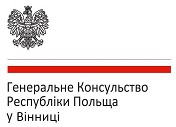Мовні, релігійні, економічні і військові засоби експансії московської держави на Україну. Від знищення Києва Андрієм Боголюбським і війни Петра І з гетьманом Мазепою до російської окупації Криму, Донбасу і Луганська
Ключові слова:
language, culture, Ukraine, Moscow, Russification, expansion, prohibitions, Ukrainianization, derussification, Sovietization, war, occupationАнотація
The title question is presented on the basis of opinions and conclusions of analyses by selected independent Russian, Polish and Ukrainian scholars: Slavists and Ukrainian literary historians specializing in the second half of the nineteenth and twentieth centuries, such as: Sergey M. Solovyov (1820-1879), Aleksandr Pypin (1833-1904), Igor Torbakov, Aleksandr Lipatov, Tadeusz Stanisław Grabowski, Jan Kaczmarczyk, Bohdan Lepky and Oksana Pakhlovska.
In the opinion of the aforementioned experts on Ukrainian-Russian relations, the first stage of the Russification of Ukraine by Russia started in Moscow as a result of violating the terms of the treaty concluded between Ukrainian Hetman Bohdan Khmelnytsky and Tsar Alexei Mikhailovich in Pereyaslav in 1654.
Tsarist Russia’s authorities aspired to eliminate the existing institutional, administrative, cultural, and, especially, linguistic, social and political differences, separating Ukrainians from Russians, which was confirmed by the following actions taken by the Moscow authorities: 1) adding two articles to the Pereyaslav agreement with the Tsarist government, pushed through by Prince Vasiliy Golitsyn, restricting the rights and activities of Ukrainian hetmans; 2) the implementation by Prince Aleksandr Vyazemsky of commands given by Empress Catherine II, who recommended to gradually restrict the privileges and rights, existing in the ‘Little Russia - as Ukrainian lands were called by Moscow at that time - Livonia and Finland [...] According to Catherine, these provinces were to be ‘Russified’ (обрусеть) within the shortest possible time, using gentle means, so that they would stop being ‘driven by their natural instincts [...] and so that the remembrance and even the names of hetmans would perish forever’(I. Torbakov).
The Russification policy in Ukraine was determined by circular letters issued by the Tsarist administration and the Tsar’s decrees (ukaz) - the famous Em Ukaz of 1876, forbidding even from using the name Ukraine’’ and printing books in the Ukrainian language. For example, the bylaw, issued by the Tsarist government in the 1840s, recommended that teaching in Russian should be introduced in these regions, as nothing unites the conquered nations with the winning one like language’. The Tsarist Russification policy was continued by the Stalinist Soviet authorities, and in the recent period - by post-Soviet Kremlin authorities.
This seemingly linguistic problem, philological in nature, which has always been a political problem, has become an issue used in the military aggression against Ukraine. The current Kremlin authorities, under the pretense of defending the rights of supposedly persecuted Russianspeaking community (mostly Ukrainians, subjected to Russification for centuries) by ‘Ukrainian nationalists’ unleashed a military war in Ukraine, carried out the annexation of Crimea and the occupation of lands of Lugansk and Donetsk Provinces. The use of the pretense as an untrue reason for waging the war against Ukraine by Russia, is confirmed by the fact that troops of regular and volunteer Ukrainian battalions defended the territory of eastern Ukraine, occupied by the troops of the Russian Federation; 80% of soldiers of the Ukrainian battalions are Russianspeaking, and they consider the war-stricken lands as part of the Ukrainian lands, belonging to undivided Ukraine. For Ukrainians, Crimea and Eastern Ukraine lands, occupied by Russia, are not ‘Novorossiya’ [‘The New Russia’] as they are labelled by the occupying Russian authorities.
##submission.downloads##
Опубліковано
Номер
Розділ
Ліцензія
Авторське право (c) 2016 Włodzimierz Mokry

Ця робота ліцензується відповідно до Creative Commons Attribution-NonCommercial 4.0 International License.
Автор, який подає матеріали до друку, зберігає за собою всі авторські права та надає відповідному виданню право першої публікації, дозволяючи розповсюджувати даний матеріал із зазначенням авторства та джерела первинної публікації, а також погоджується на розміщення її електронної версії на сайті Національної бібліотеки ім. В.І. Вернадського, в міжнародних базах даних CEJSH, Index Copernicus, POL-index, Polska Bibliografia Naukowa.

